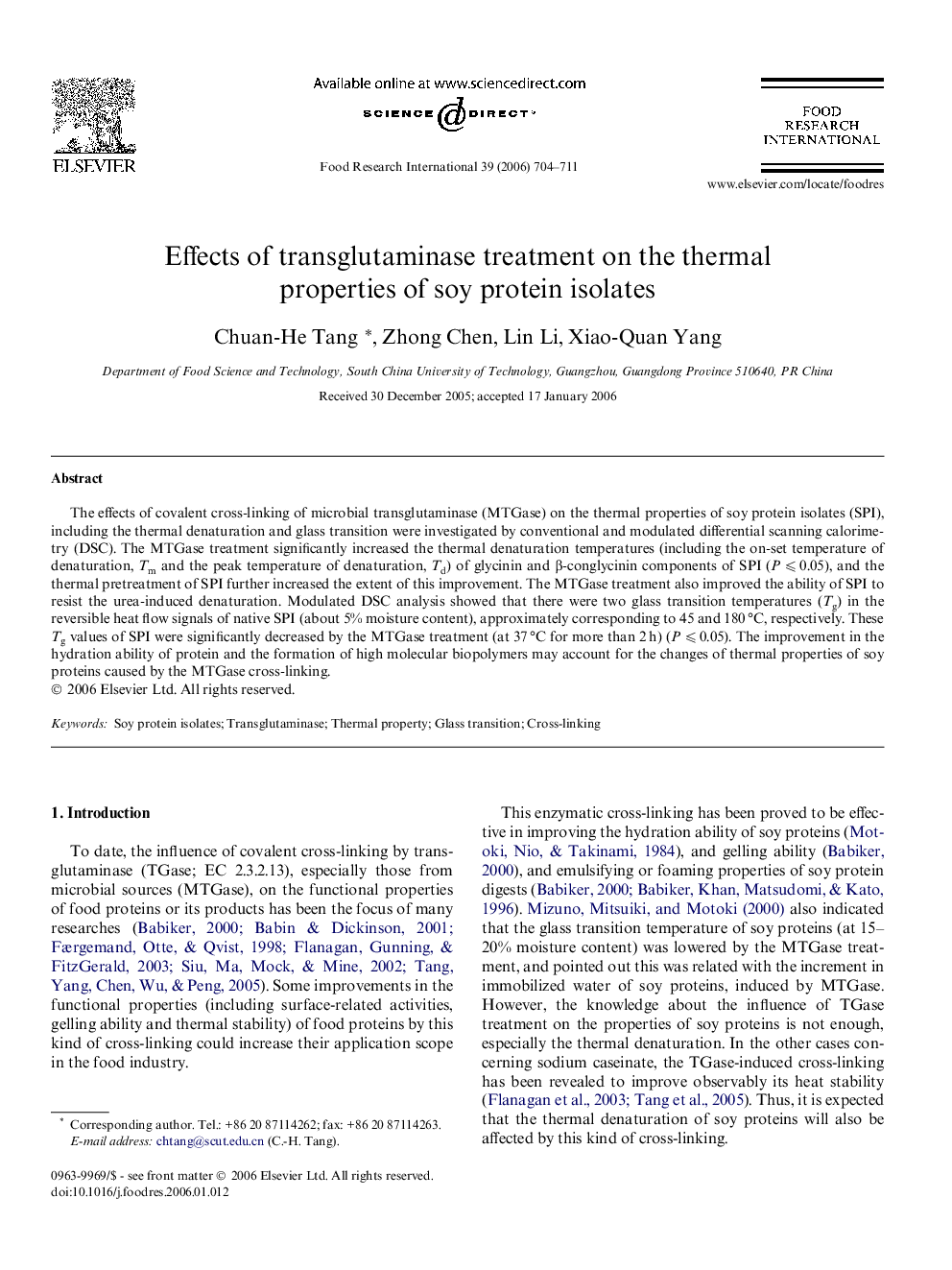| Article ID | Journal | Published Year | Pages | File Type |
|---|---|---|---|---|
| 4563019 | Food Research International | 2006 | 8 Pages |
The effects of covalent cross-linking of microbial transglutaminase (MTGase) on the thermal properties of soy protein isolates (SPI), including the thermal denaturation and glass transition were investigated by conventional and modulated differential scanning calorimetry (DSC). The MTGase treatment significantly increased the thermal denaturation temperatures (including the on-set temperature of denaturation, Tm and the peak temperature of denaturation, Td) of glycinin and β-conglycinin components of SPI (P ⩽ 0.05), and the thermal pretreatment of SPI further increased the extent of this improvement. The MTGase treatment also improved the ability of SPI to resist the urea-induced denaturation. Modulated DSC analysis showed that there were two glass transition temperatures (Tg) in the reversible heat flow signals of native SPI (about 5% moisture content), approximately corresponding to 45 and 180 °C, respectively. These Tg values of SPI were significantly decreased by the MTGase treatment (at 37 °C for more than 2 h) (P ⩽ 0.05). The improvement in the hydration ability of protein and the formation of high molecular biopolymers may account for the changes of thermal properties of soy proteins caused by the MTGase cross-linking.
